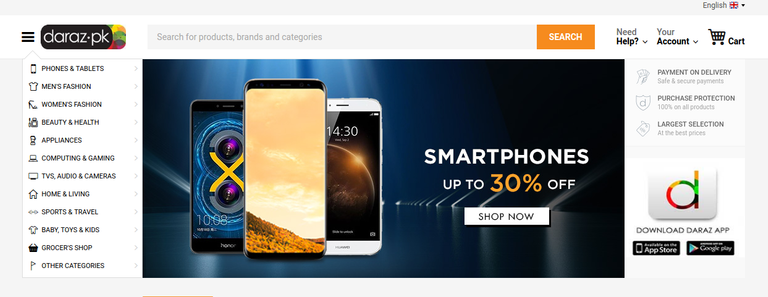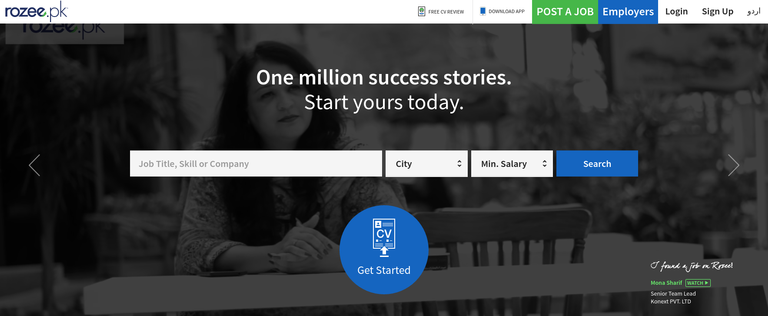Selling Online – the E-Commerce Experience
The trend of e-commerce in Pakistan was not very common a few years back. Most of the people were accustomed to the same traditional ways of doing their businesses and did not approve of having to shift it online but today, business owners have witnessed an increase of sales and improvement in overall revenue due to having an online presence. Today, the Internet is a primary source of information sharing in almost every sector especially in educational institutes, workplaces, health sectors, and banks. The very first e-commerce adventure in Pakistan was beliscity.com, founded by Abed Beli in 2001. It quickly became popular and remained a sole player on the ground for almost 5 years. Gradually, so many online ventures came forward and contributed to the evolving e-commerce industry of Pakistan. Though it was a very slow process in the beginning, since 2012 and 2013 change has rapidly occurred and Pakistan has stepped into this competitive booming E-world of online marketing, promotion, buying/selling and advertisement. Today, the buying and selling of goods has become efficient, quick and reliable which is a major milestone for consumers in Pakistan who are not used to overly efficient consumer experiences.
.png)
Though the concept of e-commerce is not new, it’s still in the process of development in Pakistan. The main reason for that is that people are accustomed to traditional ways of buying and carrying their businesses. Nonetheless, this concept is rapidly progressing and people are enjoying the brand new experience of shopping online. Online transactions have been made more convenient and secure which also has convinced more people to carry out their shopping and business activities on the Internet. Steps are being taken to create necessary frameworks in order to properly plan and execute e-commerce on individual and domestic levels. In 2002 already, the State Bank of Pakistan allowed banks to facilitate people with online merchant accounts in order to have secure financial transactions. But until 2016, only Citibank offered this service while all other financial institutions were still hesitating to force e-commerce providers and their customers to work with a pay-on-delivery system. Their hesitation derives from the relatively new kind of service e-commerce providers are offering in the country and the lack of knowledge among the masses on how to use online payment gateways. In 2015, a few banks have started facilitating payments via merchant accounts abroad which is helpful for customers and companies aware of international solutions. However, this feature still remains too complicated for the average user to access.
The PTA (Pakistan Telecommunication Authority) is working on other sources of creating an e-commerce infrastructure online. It is expected that PayPal will be able to facilitate them in this regard but it has not become functional in the country until 2016. Locally, EasyPaisa by Telenor is also considered to be a good safe option for online transactions.
Because different e-commerce sites are coming forward and going strong, it is apparent that Pakistani reluctance to step forward in e-commerce industry is merely a myth. The actual fact is that users are deprived of secure and easy ways to complete their transactions. For this reason, effective and proper infrastructure for secure transaction systems are needed at the moment.
The E-Commerce Market
Despite all the problems – the lack of resources, lack of proper planning and execution, poor installments of infrastructure, poor data limits, frauds and security hazards, the e-commerce industry in Pakistan is rapidly booming. Various online sites such as kaymu.pk, daraz.pk, rozee.pk, homeshopping.pk became some of the famous and top e-commerce champs of Pakistan in 2016. Daraz.pk made its name by providing quality service in terms of global standards by offering features such as free-home delivery and cash-on-delivery. Kaymu.pk was a platform for newbies startups to advertise and promote their products up for free and sell them online. In mid 2016 the two companies merged under the name of Daraz Group.

Homeshopping.pk is more of a home-products oriented site that provides a wide range of electronic and home appliances online.
Rozee.pk is Pakistan’s number one job-searching engine, giving loads of employment opportunities to Pakistanis.

These sites have made drastic and prominent changes in the online industry dynamics especially as the last couple of years have proved to be a turning point in Pakistan’s e-commerce industry. A number of people are now coming forward with small businesses which are growing huge.
No doubt, the future of e-commerce in Pakistan is bright. The need for online businesses and activities is increasing day by day. Most of the people like the idea of shopping and working from home without worrying about time management or jam-packed traffic on the road to reach the market. The idea of simply accessing everything from your home is becoming increasingly popular among the higher income classes.
There is also a lot of room for further improvements. One example is the way financial e-commerce transactions are enabled. Many people in Pakistan are in need of a specialized online merchant account to realize financial e-commerce transactions. Users are frequently questioning why a country with a well-developed banking infrastructure and a good number of targeted audiences online (almost 22 million) is not responding to the dire need of managing e-commerce infrastructure. Additionally, there’s a need for proper facilitation to maintain online merchant accounts. Overcoming these challenges will not only maximize the entrepreneurial spirit but also generate revenues on a bigger scale. Taking the steps to manage e-commerce infrastructure and maintain online merchant accounts will pave the way for Pakistani entrepreneurs to take advantage of full prices. Entrepreneurs will not have to worry about other ways of receiving their payments which are very costly and burdened with high fees. However, there is currently a lack of support from the banks and the government.
According to statistics published at a Pakistani Google conference in 2014, the total e-commerce industry in Pakistan was at that time worth PKR 4.5 billion a year (about 43 million USD), 24% of the whole market share. Since then growth has continued and the launch of authentic online payment gateways will support this development.
Coming next: The First Steps of the Startups Community
Previous postings of this report:
Part 1: Introduction
Part 2: The Big Four of Pakistani Telecommunication
Part 3: New Technologies and Challenges for the Market
Part 4: Pakistan Going Mobile
Part 5: The Mobile Device Industry
Part 6: Getting Connected
@resteemator is a new bot casting votes for its followers. Follow @resteemator and vote this comment to increase your chance to be voted in the future!